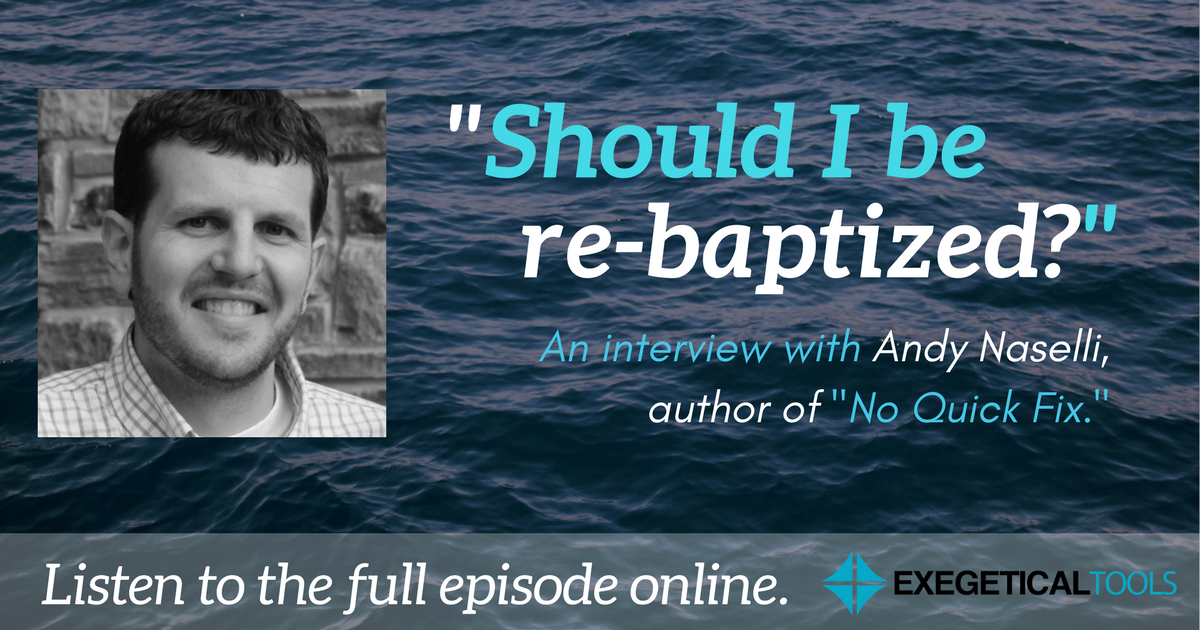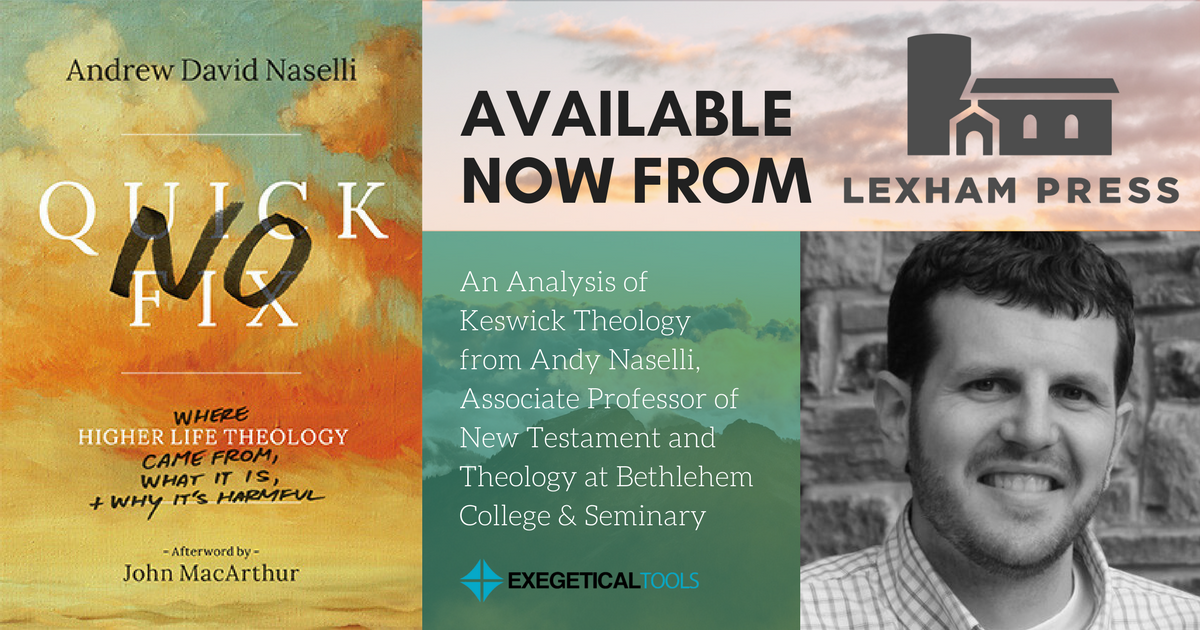Andy Naselli wrote No Quick Fix as a critique of so-called “higher life theology,” which teaches that there are two different categories of Christian: carnal and spiritual, merely saved and fully sanctified. During a recent episode of the Tool Talk podcast, Travis got to chat with Andy about his experience with this teaching, the alternative, and its ramifications for discipleship.
ET: We seem to have this experience that there are some Christians that we would say are mature, are “spiritual.” We have even maybe seen times where God brought us along in maturity in what seems like a profound way, and maybe we could misinterpret our experience there as being kind of an all-of-a-sudden “second thing.” You mention this crisis in sanctification [in No Quick Fix]. What is actually happening in your opinion, theologically, in those moments?
Andy: “I think what’s happening is a believer takes a large step of growth that’s really memorable and so significant they can look back on it and recognize, ‘Wow, I really took a large step of growth there,’ and they can then misinterpret, ‘Well, that’s where I moved from Category 1 to Category 2; I went from carnal to spiritual.’ My favorite analogy for this is eating. If I asked you, Travis, ‘What did you have for breakfast on November 1, 2014?’ I just made that up; I don’t think you could remember…”
ET: Steak and eggs. Come on.
Andy: “I don’t think most people remember what they have for every meal or what they eat between meals, but most people can think back to some memorable meals. Like, what did you have for your special dinner after you got married, or something like that. One of the most memorable meals for me was when I just finished my comprehensive exams at Trinity Evangelical Divinity School and someone had given us a gift card for Ruth’s Chris Steakhouse… When I got the steak, I took a bite, and these fireworks went off in my mouth. That was the best steak I have ever put in my mouth. It was so good, and I’ve never forgotten that. That’s a memorable meal, but that meal is not the sole reason I’m alive. That’s not the decisive health-giving food I’ve put in my body. I’ve put food in my body just about every day of my life to nourish me, and all of that food has contributed in some way to sustaining me. It wasn’t that one meal at Ruth’s Chris that was decisive. Similarly, Christians, if they’re benefitting from the means of grace, all of those means of grace are helpful, but there might be a point in time where it’s so memorable and significant, and they can misinterpret that within the framework of higher life theology.”
ET: What would you say to a member of your church who said, “I thought I was saved, but now I think that I’m really saved, and I’d like to be re-baptized”?
Andy: “Yeah, that happened this last Sunday. I was interviewing someone for church membership and listening to their story, and they mentioned that they think they became a Christian when they were young… and that there was a period in college where they seemed to reject the faith – or at least reject the church – and [went] off into drugs, etc., and then later got serious again. They were baptized earlier in life, prior to college. As an elder, I’m thinking, ‘Okay. If you were baptized prior to God regenerating you, that wasn’t baptism; that was getting wet.’
“And as they told their story they thought they really were a Christian when they were younger, and then they backslid or fell away for a time. But when they were falling away, they didn’t enjoy it. They hated their sin, they felt miserable. They knew God was convicting them and encouraging them to come back… They felt like, ‘This wasn’t God saving me later in life. It was me being disobedient and coming back.’ So I take it on a case-by-case basis. If someone really believes they were not regenerate and then they were baptized, my instinct is to say, ‘That probably wasn’t a valid baptism.’ But again, I want to say [it’s] case-by-case. I would want to involve the other elders and talk about this and make sure it’s not one guy’s sense, and that’s therefore what we all do. This is a group decision.”


